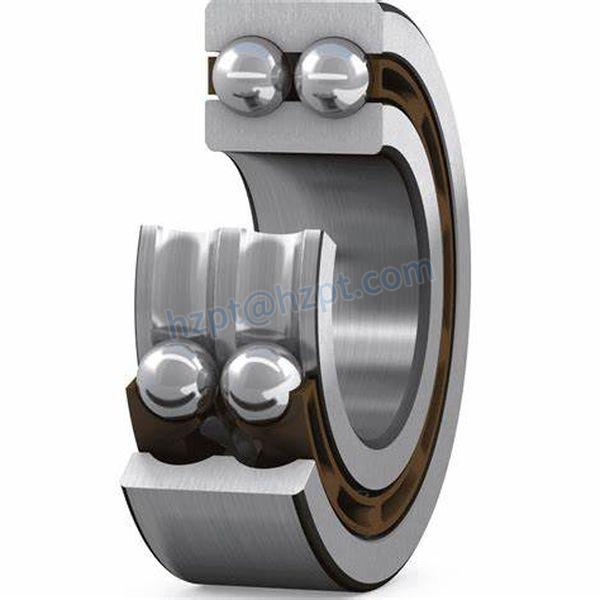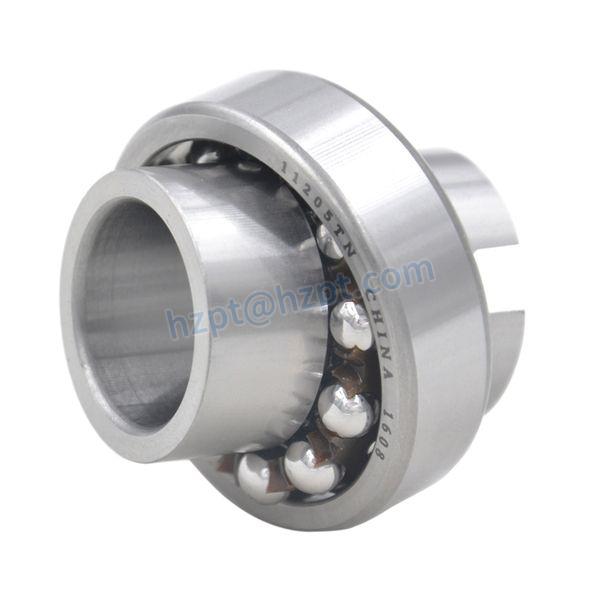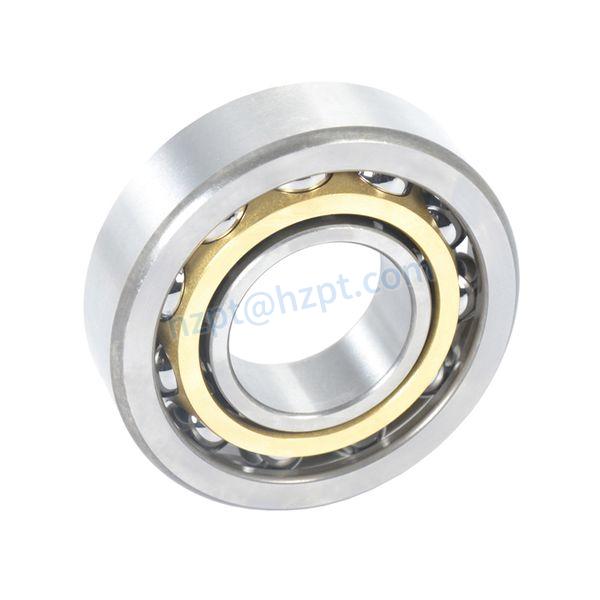Product Description
NACHI Brand Deep Groove Ball Bearing Angular Contact Ball Bearing 5306 5314
Bearing is an important part of contemporary machinery and equipment. Its main function is to support the mechanical rotating body, reduce the friction coefficient during its movement, and ensure its rotation accuracy. According to the different friction properties of the moving elements, bearings can be divided into rolling bearings and sliding bearings.
We can provide deep groove ball bearing,taper roller bearing,spherical roller bearing,angular contact ball bearing,needle bearing,self-aligning ball bearing,linear bearing,pillow block bearing,wheel hub bearing,thin wall bearing,ceramic bearing,and many famous brand bearings.
A wide range of applications:
• agriculture and forestry equipment
• automotive and industrial gearboxes
• automotive and truck electric components, such as alternators
• electric motors
• fluid machinery
• material handling
• power tools and household appliances
• textile machinery
• 2 Wheeler.
| Product Name | Deep Groove Ball Bearing |
| Brand Name | SKF/NTN/NSK/KOYO/NACHI/TIMKEN/IKO |
| Material | Chrome Steel ,Stainless steel,Ceramic,Nylon |
| Precision Grade | P0,P6,P5,P4,P2(ABEC1, ABEC3, ABEC5, ABEC7, ABEC9) |
| Greese | SRL ,PS2, Alvania R12 ,etc |
| Certifications | ISO 9001 |
| Package | Box,Carton,Wooden Box,Plastic Tube or Per buyers requirement . |
| MOQ | 2PCS |
| Serice | OEM |
| Sample | Available |
| Payment Term | TT or L/C or Western Union |
| Port | HangZhou/HangZhou/ZheJiang |
Product Parameters
| 6000 series deep groove ball bearings | ||||||
| Bearing No. | Boundary Dimensions(mm) | Basic Load Rating(N) | Weight(KG) | |||
| d | D | B | Cr | Cor | ||
| 604 | 4 | 12 | 4 | 960 | 350 | 0.571 |
| 605 | 5 | 14 | 5 | 1070 | 420 | 0.0037 |
| 606 | 6 | 17 | 6 | 1960 | 730 | 0.0069 |
| 607 | 7 | 19 | 6 | 2800 | 1060 | 0.0082 |
| 608 | 8 | 22 | 7 | 3290 | 1360 | 0.0129 |
| 609 | 9 | 24 | 7 | 3330 | 1410 | 0.016 |
| 6000 | 10 | 26 | 8 | 4160 | 1780 | 0.019 |
| 6001 | 12 | 28 | 8 | 5110 | 2380 | 0.571 |
| 6002 | 15 | 32 | 9 | 5590 | 2840 | 0.03 |
| 6003 | 17 | 35 | 10 | 6000 | 3250 | 0.039 |
| 6004 | 20 | 42 | 12 | 9390 | 5571 | 0.069 |
| 6005 | 25 | 47 | 12 | 10060 | 5860 | 0.08 |
| 6006 | 30 | 55 | 13 | 11900 | 7460 | 0.12 |
| 6007 | 35 | 62 | 14 | 16210 | 10420 | 0.16 |
| 6008 | 40 | 68 | 15 | 17030 | 11700 | 0.19 |
| 6009 | 45 | 75 | 16 | 21080 | 14780 | 0.25 |
| 6571 | 50 | 80 | 16 | 22000 | 16260 | 0.26 |
| 6011 | 55 | 90 | 18 | 31500 | 18400 | 0.39 |
| 6012 | 60 | 95 | 18 | 30000 | 23000 | 0.42 |
| 6013 | 65 | 100 | 18 | 32000 | 25000 | 0.44 |
| 6014 | 70 | 110 | 20 | 38000 | 31000 | 0.6 |
| 6015 | 75 | 115 | 20 | 38000 | 31000 | 0.64 |
| 6016 | 80 | 125 | 22 | 47500 | 40000 | 0.85 |
| 6017 | 85 | 130 | 22 | 47500 | 40000 | 0.89 |
| 6018 | 90 | 140 | 24 | 63800 | 59000 | 1.15 |
| 6019 | 95 | 145 | 24 | 66700 | 62300 | 1.2 |
| 6571 | 100 | 150 | 24 | 72500 | 70000 | 1.25 |
| 6200 Series Miniature Deep Groove Ball Bearing | ||||||
| Bearing No. | Boundary Dimensions(mm) | Basic Load Rating(N) | Weight(KG) | |||
| d | D | B | Cr | Cor | ||
| 624 | 4 | 13 | 5 | 1150 | 400 | 0.0032 |
| 625 | 5 | 16 | 5 | 1880 | 680 | 0.0051 |
| 626 | 6 | 19 | 6 | 2800 | 1060 | 0. |
| 627 | 7 | 22 | 7 | 3290 | 1360 | 0.0131 |
| 628 | 8 | 24 | 8 | 3330 | 1410 | 0.017 |
| 629 | 9 | 26 | 8 | 4160 | 1780 | 0.0191 |
| 6200 | 10 | 30 | 9 | 5110 | 2380 | 0.032 |
| 6201 | 12 | 32 | 10 | 6180 | 3060 | 0.037 |
| 6202 | 15 | 35 | 11 | 7450 | 3700 | 0.045 |
| 6203 | 17 | 40 | 12 | 9560 | 4780 | 0.065 |
| 6204 | 20 | 47 | 14 | 12840 | 6650 | 0.11 |
| 6205 | 25 | 52 | 15 | 14571 | 7930 | 0.13 |
| 6206 | 30 | 62 | 16 | 19460 | 11310 | 0.2 |
| 6207 | 35 | 72 | 17 | 25670 | 15300 | 0.29 |
| 6208 | 40 | 80 | 18 | 29520 | 181400 | 0.37 |
| 6209 | 45 | 85 | 19 | 32500 | 20400 | 0.41 |
| 6210 | 50 | 90 | 20 | 35000 | 32300 | 0.46 |
| 6211 | 55 | 100 | 21 | 43500 | 29200 | 0.61 |
| 6212 | 60 | 110 | 22 | 52500 | 36000 | 0.78 |
| 6213 | 65 | 120 | 23 | 57200 | 45710 | 0.99 |
| 6214 | 70 | 125 | 24 | 62000 | 44000 | 1.05 |
| 6215 | 75 | 130 | 25 | 66000 | 49500 | 1.2 |
| 6216 | 80 | 140 | 26 | 72500 | 53000 | 1.4 |
| 6217 | 85 | 150 | 28 | 83500 | 64000 | 1.8 |
| 6218 | 90 | 160 | 30 | 96000 | 71500 | 2.15 |
| 6219 | 95 | 170 | 32 | 109000 | 82000 | 2.6 |
| 6220 | 100 | 180 | 34 | 122000 | 93000 | 3.15 |
Packaging & Shipping
Company Profile
Our Advantages:
1. World-Class Bearing: We provide our customers with all types of indigenous bearing with world-class quality.
2. OEM or Non-Stand Bearings: Any requirement for Nonstandard bearings is Easily Fulfilled by us due to its vast knowledge and links in the industry.
3. Genuine products With Excellent Quality: The company has always proved the 100% quality products it provides with genuine intent.
4. After Sales Service and Technical Assistance: The company provides after-sales service and technical assistance as per the customer’s requirements and needs.
5. Quick Delivery: The company provides just-in-time delivery with its streamlined supply chain.
SAMPLES
1. Samples quantity: 1-10 PCS are available.
2. Free samples: It depends on the Model No., material and quantity. Some of the bearings samples need client to
pay samples charge and shipping cost.
3. It’s better to start your order with Trade Assurance to get full protection for your samples order.
CUSTOMIZED
The customized LOGO or drawing is acceptable for us.
MOQ
1. MOQ: 10 PCS standard bearings.
2. MOQ: 1000 PCS customized your brand bearings.
OEM POLICY
1. We can printing your brand (logo, artwork)on the shield or laser engraving your brand on the shield.
2. We can custom your packaging according to your design
3. All copyright own by clients and we promised don’t disclose any info.
FAQ
1.What is the minimum order quantity for this product?
Can be negotiated, we will try our best to meet customer needs.Our company is mainly based on wholesale sales,
most customers’orders are more than 1 ton.
2.What is your latest delivery time?
Most orders will be shipped within 7-15 days of payment being received.
3.Does your company have quality assurance?
Yes, for 1 years.
4.What is the competitiveness of your company’s products compared to other companies?
High precision, high speed, low noise.
5.What are the advantages of your company’s services compared to other companies?
Answer questions online 24 hours a day, reply in a timely manner, and provide various documents required by
customers for customs clearance or sales. 100% after-sales service.
6.Which payment method does your company support?
Do our best to meet customer needs, negotiable.
7.How to contact us quickly?
Please send us an inquiry or message and leave your other contact information, such as phone number,
account or account, we will contact you as soon as possible and provide the detailed information you need.
Please feel free to contact us, if you have any other question
/* January 22, 2571 19:08:37 */!function(){function s(e,r){var a,o={};try{e&&e.split(“,”).forEach(function(e,t){e&&(a=e.match(/(.*?):(.*)$/))&&1
| Contact Angle: | 0 |
|---|---|
| Aligning: | Non-Aligning Bearing |
| Separated: | Unseparated |
| Rows Number: | Single |
| Load Direction: | Radial Bearing |
| Material: | Bearing Steel |
| Samples: |
US$ 10/Piece
1 Piece(Min.Order) | |
|---|
| Customization: |
Available
| Customized Request |
|---|
What are the Challenges Associated with Noise Reduction in Ball Bearings?
Noise reduction in ball bearings is a crucial consideration, especially in applications where noise levels must be minimized for operational efficiency and user comfort. While ball bearings are designed to operate smoothly, there are several challenges associated with reducing noise in their operation:
- Vibration:
Vibration generated by the movement of rolling elements and raceways can lead to noise. Even minor irregularities in bearing components or the mounting system can cause vibration that translates into audible noise.
- Bearing Type and Design:
The type and design of the ball bearing can impact noise generation. For example, deep groove ball bearings are known for their quiet operation, while angular contact bearings can generate more noise due to their higher contact angles.
- Lubrication:
Improper or inadequate lubrication can result in increased friction and wear, leading to noise. Choosing the right lubricant and maintaining proper lubrication levels are essential for reducing noise in ball bearings.
- Bearing Clearance and Preload:
Incorrect clearance or preload settings can lead to noise issues. Excessive clearance or inadequate preload can cause the rolling elements to impact the raceways, resulting in noise during rotation.
- Material and Manufacturing Quality:
The quality of materials and manufacturing processes can affect noise levels. Inconsistent or low-quality materials, improper heat treatment, or manufacturing defects can lead to noise generation during operation.
- Surface Finish:
The surface finish of the rolling elements and raceways can impact noise. Rough surfaces can generate more noise due to increased friction and potential irregularities.
- Sealing and Shielding:
Seals and shields that protect bearings can influence noise levels. While they are necessary for contamination prevention, they can also cause additional friction and generate noise.
- Operating Conditions:
External factors such as temperature, speed, and load can influence noise levels. High speeds or heavy loads can amplify noise due to increased stress on the bearing components.
- Wear and Deterioration:
As ball bearings wear over time, noise levels can increase. Worn components or inadequate lubrication can lead to more significant noise issues as the bearing operates.
To address these challenges and reduce noise in ball bearings, manufacturers and engineers employ various techniques, such as optimizing design, selecting suitable bearing types, using proper lubrication, maintaining accurate preload settings, and ensuring high-quality materials and manufacturing processes. Noise reduction efforts are essential to improve overall product quality, meet noise regulations, and enhance user experience in various applications.
Are there any Industry Standards or Certifications that Ball Bearings should Meet?
Yes, there are several industry standards and certifications that ball bearings should meet to ensure their quality, performance, and reliability. These standards help manufacturers, engineers, and customers assess the suitability of bearings for specific applications. Some of the key standards and certifications for ball bearings include:
- ISO Standards:
The International Organization for Standardization (ISO) has developed a series of standards related to ball bearings. ISO 15 defines dimensions, boundary dimensions, and tolerances for radial bearings. ISO 281 specifies dynamic load ratings and calculation methods for bearings’ life calculations.
- ABEC (Annular Bearing Engineering Committee) Ratings:
ABEC ratings are commonly used in North America to indicate the precision and performance of ball bearings. Ratings range from ABEC 1 (lowest precision) to ABEC 9 (highest precision). However, it’s important to note that ABEC ratings focus primarily on dimensional tolerances and do not encompass all aspects of bearing quality.
- DIN Standards:
The German Institute for Standardization (Deutsches Institut für Normung, DIN) has published various standards related to ball bearings. DIN 625 covers dimensions for deep groove ball bearings, while DIN 616 provides guidelines for precision angular contact ball bearings.
- JIS (Japanese Industrial Standards):
JIS standards are used in Japan and internationally to define the characteristics and dimensions of various products, including ball bearings. JIS B 1512 outlines the classification and dimensions of rolling bearings.
- ASTM (American Society for Testing and Materials) Standards:
ASTM has standards that cover various aspects of bearing testing, performance, and materials. ASTM F2215, for instance, specifies the requirements for ball bearings used in surgical implants.
- CE Marking:
CE marking indicates that a product complies with European Union health, safety, and environmental requirements. It may be required for bearings used in machinery intended to be sold within the EU market.
- Industry-Specific Standards:
Various industries, such as aerospace, automotive, medical, and nuclear, have specific standards or certifications that bearings must meet to ensure safety, reliability, and compliance with industry-specific requirements.
- Quality Management Systems:
Manufacturers that adhere to quality management systems, such as ISO 9001, demonstrate their commitment to consistent product quality and customer satisfaction. Certification to these systems indicates that the manufacturing process follows established protocols and best practices.
When selecting ball bearings, it’s important to consider the relevant standards and certifications that align with the application’s requirements. This ensures that the bearings meet recognized quality and performance criteria, ultimately contributing to reliable and efficient operation.
Can you Explain the Various Types of Ball Bearings and their Specific Use Cases?
Ball bearings come in various types, each designed to meet specific application requirements. Here’s an overview of the different types of ball bearings and their specific use cases:
- Deep Groove Ball Bearings:
Deep groove ball bearings are the most common and versatile type. They have a deep raceway that allows them to handle both radial and axial loads. They are used in a wide range of applications, including electric motors, household appliances, automotive components, and industrial machinery.
- Angular Contact Ball Bearings:
Angular contact ball bearings have a contact angle that enables them to handle both radial and axial loads at specific angles. They are suitable for applications where combined loads or thrust loads need to be supported, such as in machine tool spindles, pumps, and agricultural equipment.
- Self-Aligning Ball Bearings:
Self-aligning ball bearings have two rows of balls and are designed to accommodate misalignment between the shaft and the housing. They are used in applications where shaft deflection or misalignment is common, such as conveyor systems, textile machinery, and paper mills.
- Thrust Ball Bearings:
Thrust ball bearings are designed to support axial loads in one direction. They are commonly used in applications where axial loads need to be supported, such as in automotive transmissions, steering systems, and crane hooks.
- Single-Row vs. Double-Row Bearings:
Single-row ball bearings have a single set of balls and are suitable for moderate load and speed applications. Double-row ball bearings have two sets of balls and offer higher load-carrying capacity. Double-row designs are used in applications such as machine tool spindles and printing presses.
- Miniature and Instrument Ball Bearings:
Miniature ball bearings are smaller in size and are used in applications with limited space and lower load requirements. They are commonly used in small electric motors, medical devices, and precision instruments.
- Max-Type and Conrad Bearings:
Max-type ball bearings have a larger number of balls to increase load-carrying capacity. Conrad bearings have fewer balls and are used in applications with moderate loads and speeds.
- High-Precision Ball Bearings:
High-precision ball bearings are designed for applications where accuracy and precision are critical, such as machine tool spindles, aerospace components, and optical instruments.
- High-Speed Ball Bearings:
High-speed ball bearings are engineered to minimize friction and accommodate rapid rotation. They are used in applications such as dental handpieces, turbochargers, and centrifuges.
In summary, the various types of ball bearings are tailored to different application requirements, including load type, direction, speed, and environmental conditions. Selecting the appropriate type of ball bearing ensures optimal performance and longevity in specific applications.
editor by CX 2024-05-07




